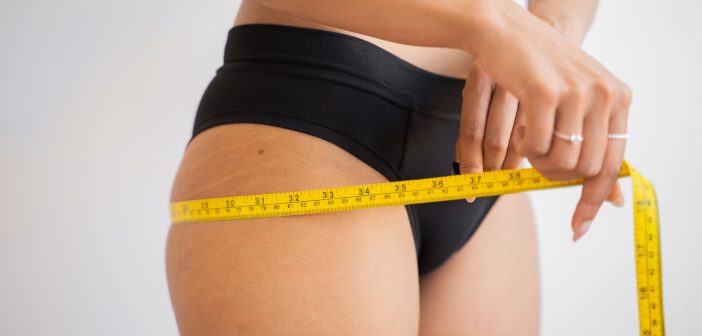“I’m too fat.” “I need to lose some weight.” “Just a salad please.” “I have to fit into that Brandy Melville skirt.” Such phrases only begin to scratch the surface of the issues facing women – and to some extent, men – nowadays, as body shaming, toxic beauty standards, dieting methods, and eating disorders become increasingly common; a phenomenon largely exacerbated by social media. Bottom line, such struggles cause many of us to forget about the most important skill we can possibly cultivate: loving ourselves.
That’s why this Sunday, Jul 18, local women empowerment group She’Strong will host “Body Shaming and Eating Disorders”, an event featuring nutritionist and health coach Paola Godinez Rocha alongside therapist and life coach Rachel George, who will remind us in no uncertain terms that we are all beautiful just the way we are. I sat down with George to discuss the prevalence of body issues and how to combat them.
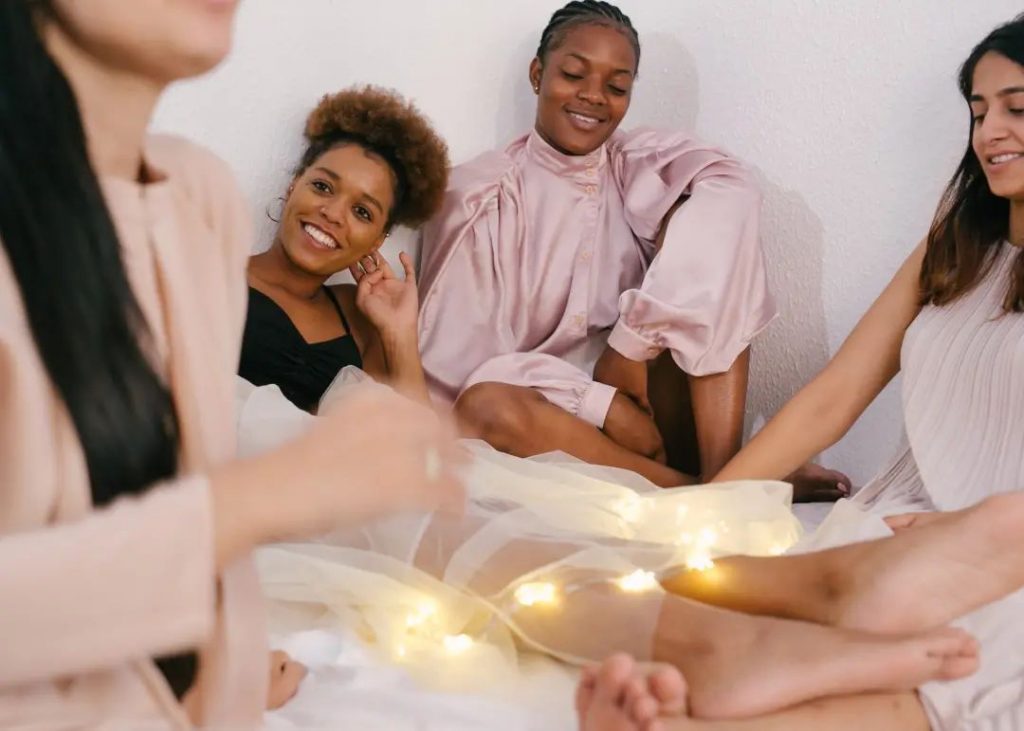
In your opinion, what are the root causes of body shaming in society?
Here’s the truth, we are all born knowing how to eat. Think back to when you were a child, you ate what felt good to you. You didn’t choose blueberries over a popsicle! We didn’t think about not eating that cookie because of the sugar and carbs associated with it. To put it simply, we ate what looked yummy! Somewhere along the way, diet culture crept into our minds, and we began not listening to our bodies, but instead followed the “rules” placed on us by others. So, in the case of body shaming, it is totally from outside sources. We live in a society where beauty and thinness are equated with happiness and success. If we don’t live up to this ideal, then we feel inadequate, ashamed, and embarrassed. We silently hate the body we are in because it doesn’t meet the expectation that others have given us. We forget to listen to ourselves, and most importantly – we forget that we are beautiful, worthy, and valuable in this moment and every moment.

What is the difference between eating disorders and disordered eating?
Disordered eating is the extent to which you stop listening to your body, giving her what she needs to feel nourished and complete. Remember, our bodies are magical, they know how to eat. When we eat in a disordered way, we ignore our instincts and eat according to external food and exercise rules, oftentimes in a way where what we eat, or don’t eat, interferes with our life. We turn outward instead of inward. In truth, the majority of us eat in a disordered way. If you count your carbs, eliminate entire food groups, intermittently fasted, detoxed for a week, all in the name of achieving a body ideal, then you are eating in a disordered manner. I give more signs you may be eating in a disordered way during the talk.
An eating disorder involves disordered eating. However, the difference is the intensity of the disordered eating patterns. Eating disorders are clinically diagnosed and are characterized by severe and persistent eating disturbances along with associated distressing thoughts and emotions.
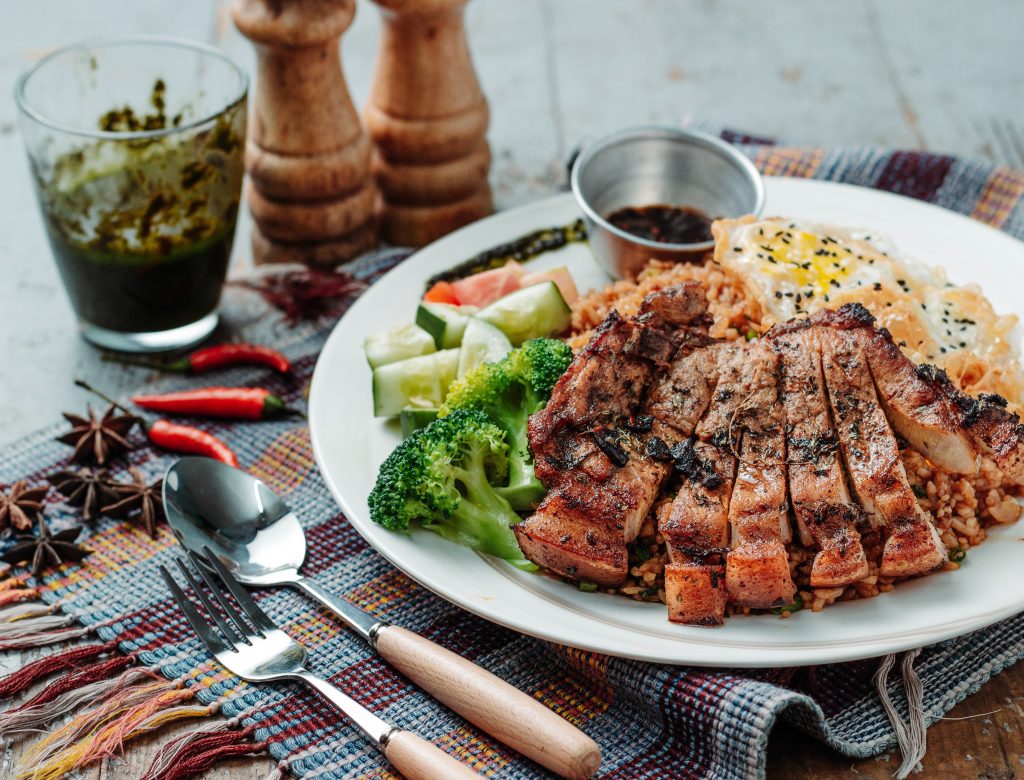
There is also the common perception that these conditions only develop with extremely skinny people. So does my condition, as a teenage girl who is slightly overweight, still count if I experience the same thing?
Yes!!! We believe that only white, thin women struggle with eating disorders. This could not be further from the truth. Women and men of all sizes, shapes, and nationalities can experience an eating disorder, it does not discriminate.
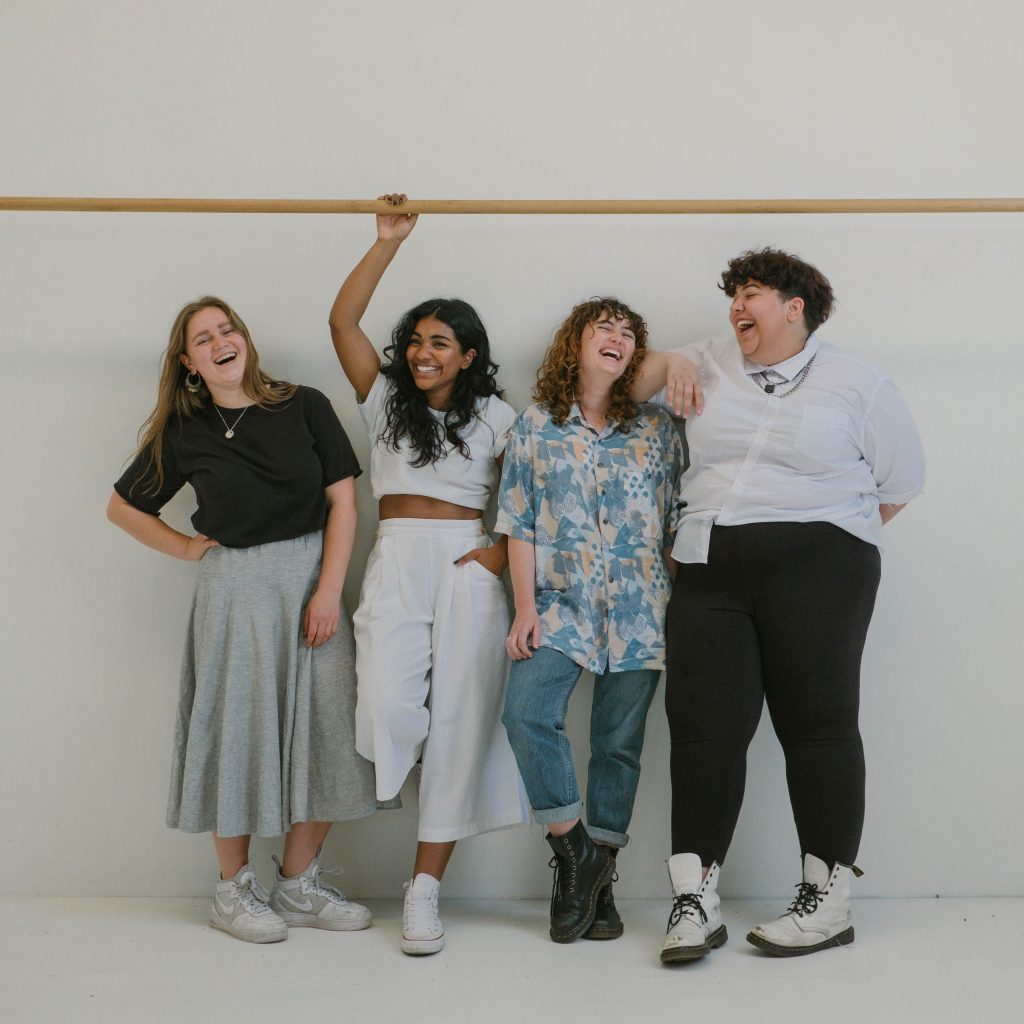
What’s your advice for girls like me on how to deal with it?
It all begins and ends in your mind. Begin not only believing, but remembering every single day that you are complete, valuable, and worthy just as you are. The way we experience the world, in turn, affects how we feel about ourselves. Here’s a tip when it comes to the media: Start becoming aware of your own reactions to how the media and society portray beauty. What does your gorgeous mind say when you see a celebrity on social media, or a model, or the “hot” girl on reality TV. Do you think, “Oh, if I looked like this, my life would be perfect?” Or, “I need to lose weight?” Become diligent about your awareness of what the media gives us. Then, stop and ask yourself, where are these thoughts coming from? Question your reaction. Why are you thinking this way? Does thinking this way influence your behaviors? Make the choice to not believe faulty thoughts and ways of being. Believe in yourself. You are the expert in your own life.

Do you have any personal experiences to share?
From a personal standpoint, I have eaten in a disordered way and experienced negative body image, which turned into an obsession in my younger years. I told myself it was because I wanted to be healthy, but the truth was, I hated the way I looked. I judged my body based on someone else’s, leading me to exercise to the point of exhaustion and obsessively weighing myself three times a day. I was unable to love who I saw in the mirror, even when I reached my “goal” weight. I thought, if I could only be this size, or have this shape, I would be happy. It was never enough. It took me taking a step back, and evaluating how I felt about myself, outside of any distractions, to show me that the work that needed to be done was inward. Body image is something we are ashamed to talk about. Admitting we struggle in this area means that we are failures. However, the power comes through the conversation. I am ready to not only share my struggle but encourage others to do the same.

Any words that you want to say to the people who are reading this?
Who you are in this exact moment, is enough. More than enough actually. You are worthy of love and acceptance – just as you are. Every. Single. Day. You are more than what you see in the mirror. You are a beautiful soul rocking it out in a glorious body!
She’Strong presentation on “Body Shaming and Eating Disorders” takes place this Sunday from 4:30-6:30pm at Encuentro, Workers’ Stadium North. Tickets cost RMB 120. Scan the QR code below for more details!
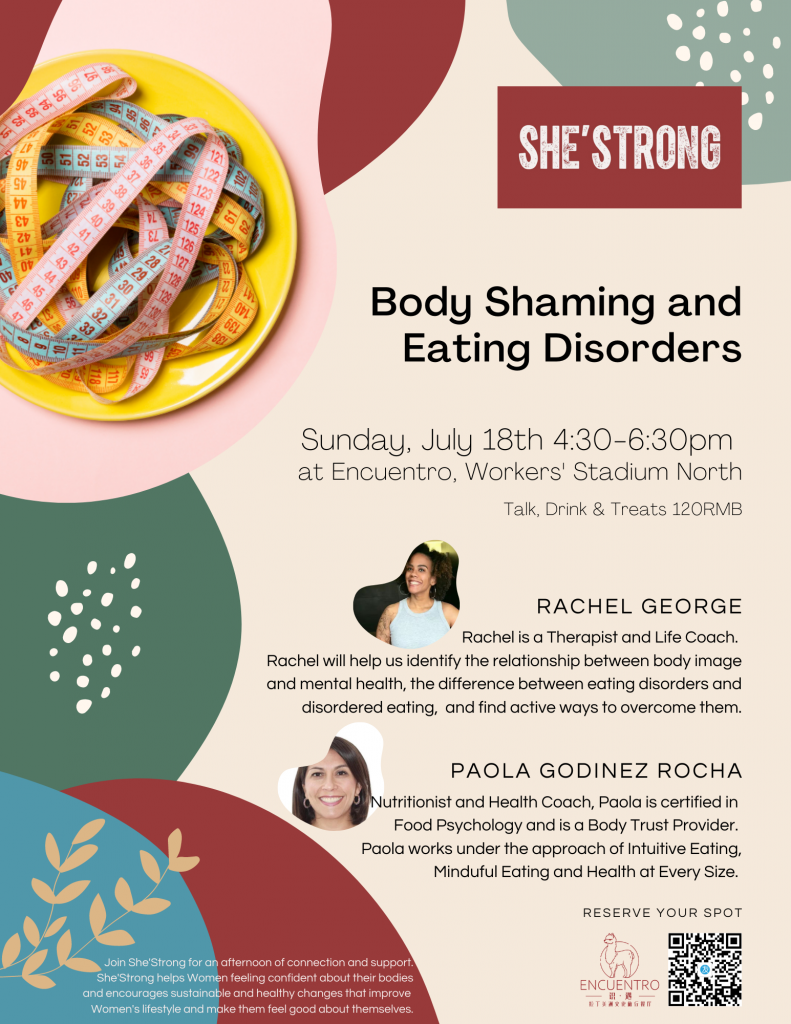
KEEP READING: Would You Put a Cup up There? Teens Spill the Beans on Period Care Options
Images: Unsplash, Pexels, She’Strong

